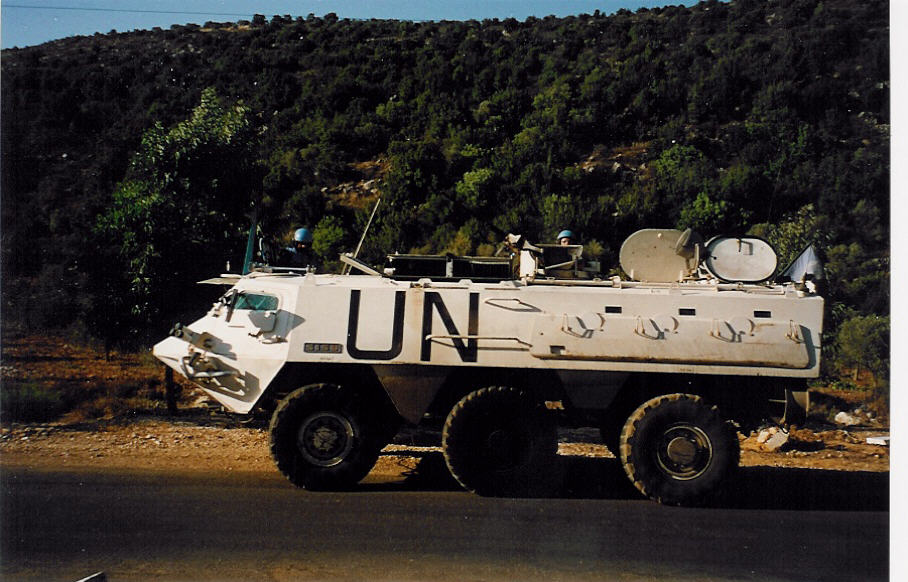European Union (EU) countries contributing troops to the United Nations Interim Force in Lebanon (UNIFIL) have condemned attacks on UNIFIL positions and agreed to increase pressure on Israel to avoid further incidents involving the mission.
Italian Prime Minister Giorgia Meloni visited Lebanon on Friday. In a joint press conference after meeting with Lebanese caretaker Prime Minister Najib Mikati, Meloni called for the full and immediate implementation of the UN Security Council Resolution 1701, urging all parties to ensure UNIFIL’s safety and security.
“The targeting of UNIFIL is unacceptable, and I call again for all parties to work to ensure the safety and security of these soldiers,” she said.
Sixteen EU countries have agreed to increase political and diplomatic pressure on Israel to avoid further incidents involving the UNIFIL mission. This decision was reached after a videoconference led by Italy’s Defense Minister Guido Crosetto and French counterpart Sebastien Lecornu on Wednesday.
The videoconference involved key EU nations, including Ireland, Germany, Spain, Austria, and Greece, among others. These countries reiterated their commitment to maintaining a stable UNIFIL presence in the region and asserted that any changes to the mission’s future should be decided collectively by the UN.
Over the past few days, Israeli forces have launched multiple attacks on UNIFIL positions in Lebanon, injuring peacekeepers and drawing criticism from the international community. According to the UN, their base has been targeted at least 20 times since Israel ramped up its attacks on Lebanon earlier this month, though Israel denies intentionally targeting UN forces.
None of the 27 EU member states are in favour of withdrawing the UNIFIL, EU’s High Representative for Foreign Affairs and Security Policy Josep Borrell said at a meeting of EU foreign ministers on Monday.
“Such attacks against UN peacekeepers constitute a grave violation of international law, are totally unacceptable, and must stop immediately,” the EU’s Foreign Affairs Council said.
French President Emmanuel Macron held a phone call with Israeli Prime Minister Benjamin Netanyahu on Tuesday, during which he urged the Israeli prime minister to “put an end to this unjustifiable targeting,” the French presidential office said on Wednesday.
Calling for an immediate ceasefire, Macron also reiterated France’s determination to avoid a conflagration throughout the region that would have devastating consequences for the population and international security.
A joint statement was issued on Monday by foreign ministers of France, Germany, Italy and the United Kingdom, expressing “deep concern” in the wake of recent attacks by the Israel Defense Forces (IDF) on UNIFIL bases. “These attacks must stop immediately. We condemn all threats to UNIFIL’s security,” the statement read.
“Any deliberate attack against UNIFIL goes against international humanitarian law and United Nations Security Council Resolution 1701. The protection of peacekeepers is incumbent upon all parties to a conflict,” it said.
Dutch Defense Minister Ruben Brekelmans stressed that “All parties must adhere to international agreements. We condemn attacks on UN peacekeepers.” Dutch Foreign Minister Caspar Veldkamp emphasized that “The safety and security of UN peacekeepers must be respected,” and it is crucial to achieve a ceasefire in Lebanon and to implement UN Security Council resolutions.
Croatian President Zoran Milanovic on Tuesday condemned Israel’s repeated attacks on members of the UNIFIL, describing these acts as violations of international law and threats to peacekeeping efforts in the region. Milanovic said there is no justification for these attacks, and called on all belligerents, including the IDF, to immediately cease all forms of aggression.
Slovak Foreign Minister Juraj Blanar said on Monday at the EU Foreign Affairs Council in Luxembourg that the attacks lodged by Israeli troops against UNIFIL increased the tension in the Middle East and are unacceptable.
UNIFIL is a peacekeeping mission that was established by the UN Security Council in 1978, following Israel’s first invasion into southern Lebanon. It has around 10,000 peacekeepers from 50 contributing countries.
Since Sept. 23, the Israeli army has been launching an unprecedented, intensive air attack on Lebanon in a dangerous escalation with Hezbollah. In early October, the army began what it said was a “limited” ground campaign, targeting Hezbollah positions in southern Lebanon.

